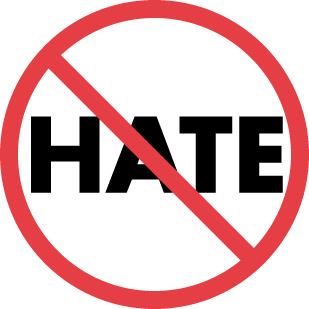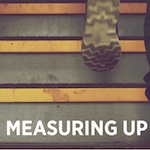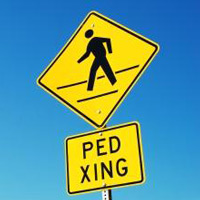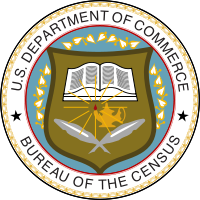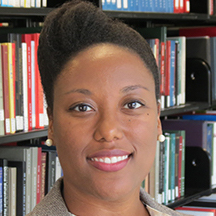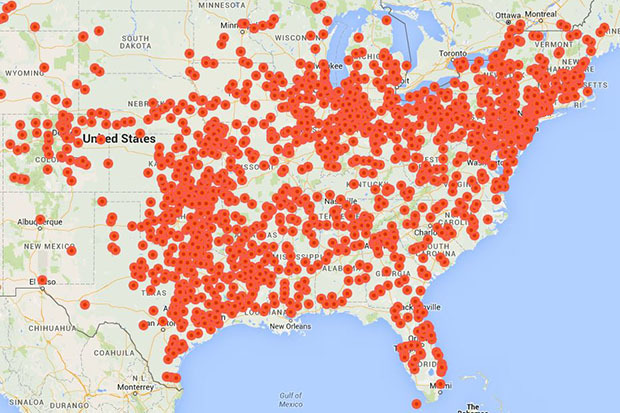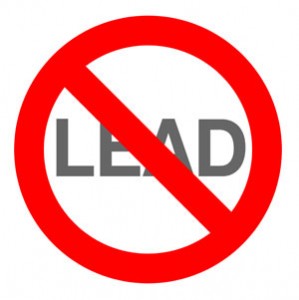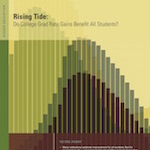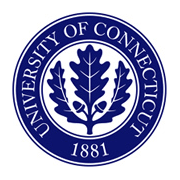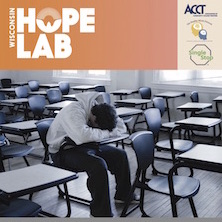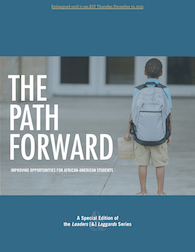Higher Mortality Rates for All Races in Communities With High Levels of Racial Prejudice
The data showed that communities with a higher level of anti-Black prejudice had a death rate for people of all races that averaged 24 percent higher than in communities with low levels of racial prejudice.
Pell Grants Are a Major Factor in College Affordability for African Americans
Nearly 62 percent of all African American undergraduates received a Pell Grant in the 2011-12 academic year. For Whites, 33.5 percent of undergraduates that year were Pell Grant recipients. The average grant to Black students was $3,400.
How Broadband Internet Access Fueled a Rise in Hate Crimes
Researchers at the University of Minnesota and New York University found that in counties where broadband Internet access became readily available in the early years of the century, the number of hate crimes increased by an average of 20 percent.
Study Finds That Schools in the United States Serve to Widen Inequality
Lead author Professor William Schmidt of Michigan State University says that "the belief that schools are the great equalizer, helping students overcome the inequalities of poverty is a myth."
Demographics of Students in a Particular School Can Impact the Racial Achievement Gap
A new report from the Department of Education finds that Black students, particularly Black males, did poorer academically in schools with a high percentage of Black students. The overall Black-White achievement gap was higher in schools with a large percentage of Black students.
A “Black-Sounding” Name Makes Whites Assume a Larger, More Dangerous Person
A new study by researchers at UCLA finds that Whites assume that any person with a Black-sounding name is similar in characteristics to a person with a White-sounding name who they were told has a criminal record.
University Study Finds U.S. Urban Schools Aren’t Measuring Up
The University of Washington study found that there has been little or no academic progress in these largely minority urban schools. In 30 of the 50 cities, less than 15 percent of the students in the urban public schools took either the ACT or SAT college entrance examination.
Is Bias Responsible for the Racial Disparity in Pedestrian Deaths?
A study by researchers at the University of Arizona and Portland State University found that African Americans on average had to wait 32 percent longer than Whites before drivers would yield to them in crosswalks.
University of Maryland Study Shows Black Arts Groups Are Struggling
“In 2015, a large number of arts organizations of color are struggling, in some cases desperately,” conclude the authors of the report from the DeVos Institute of Arts Management at the University of Maryland.
Blacks Are More Likely Than Whites to Be Enrolled in School
More than 30 percent of African Americans over the age of 3 are enrolled in school at some level compared to 22 percent of Whites. But Whites still hold an edge in college enrollments, particularly among men.
Among New High School Grads, Blacks Are More Likely Than Whites to Enroll in...
Among recent high school graduates, Blacks are more likely than Whites to enroll in higher education. But if we look at recent high school graduates who are full-time students at four-year colleges and universities, Whites are more likely to be enrolled than Blacks.
A Check-Up on the Racial Gap in Medical School Applications and Enrollments
In 2015, the number of Black applicants to U.S. medical schools was up a whopping 16.8 percent from 2014. Blacks were 7.6 percent of all medical school matriculants in 2015. This was up from 6.9 percent in 2014.
Black Graduates of HBCUs Fare Better Than Other African American College Graduates
A new study by Gallup Education shows that Black students who graduate from HBCUs may go on to a more satisfying life than Black graduates of predominately White colleges and universities.
A Snapshot of the Gender Gap in African American Enrollments in Higher Education
In October 2014, there were 1,802,000 Black women enrolled in all levels of higher education in the United States, compared to 1,132,000 Black men. Thus, women made up 61.4 percent of all African American enrollments.
Princeton University Study Finds Increase in Middle-Age Mortality for Whites, But Not for Blacks
After 1998, death rates among middle-aged White non-Hispanic Americans began to rise at a steady clip of half a percent per year. For non-Hispanic, middle-aged African-Americans, mortality rates declined 2.6 percent per year.
How Anti-Affirmative Action Admissions Laws Impact Campus Diversity Efforts
The authors found a reluctance by administrators who are charged with diversity missions at universities prohibited from using race in admissions decisions to deal specifically with race in their efforts to create a more welcoming campus.
The Racial Gap in Advancement Placement Test Scores
The average score on Advanced Placement examinations for African American students in 2015 was 2.05. On the AP scoring system of 5 to 1, a score of 2 is equivalent to a grade of D in a college-level course.
For Black Youths, Stress Can Lead to Health Problems Later in Life
African American youth who are routinely subjected to stress produce higher levels of the stress hormone cortisol that can build up and lead to health problems much later in life.
Census Data Documents African Language Use in the United States
Some 60 million Americans over the age of 5 speak a language other than English at home. This is about one fifth of all Americans. Nearly 900,000 Americans speak an African language at home. Among the most common African languages in the U.S. are Kru, Ibo, Yoruba, Cushite, and Swahili.
The Persisting Racial Gap in College Student Graduation Rates
New data on graduation rates from the U.S. Department of Education shows that in a group of the nation’s largest universities, the Black student graduation rate of 46 percent is 21 percentage points lower than the rate for White students. This gap has existed for a quarter century.
Racial Differences in Mobility Rates in the United States by Educational Attainment
Blacks in the United States are more likely to move than whites. In the 2014-to-2015 period, almost 6 million African Americans, nearly 15 percent of the entire Black population of the United States changed their residence. But for highly educated Blacks and Whites, the racial mobility gap no longer exists.
Students From Sub-Saharan Africa at U.S. Colleges and Universities, 2014-15
In the 2013-14 academic year, there were 31,113 students from sub-Saharan Africa enrolled at colleges and universities in the United States. They made up 3.5 percent of the 886,052 foreign students at U.S. colleges and universities.
Latest Data on U.S. College Students Who Studied Abroad in Sub-Saharan Africa
Of the 304,467 American students studying abroad in all areas of the globe, about 5.6 percent, are African Americans. A decade ago African Americans were 3.4 percent of all U.S. college students who studied abroad. More than 13,000 U.S. college students studied at universities in sub-Saharan Africa in the 2013-14 period.
Virginia Commonwealth University Project Maps the Spread of the Ku Klux Klan
The Ku Klux Klan reemerged in the early part of the twentieth century. At its height in the 1920s, there were more than 2,000 local chapters of the Klan with as many as 8 million members. A new project documents the spread of the Klan across the United States.
The Widening Racial Gap in Bachelor’s Degree Attainments in Some STEM Fields
During the 10-year period, the number of bachelor's degrees awarded in physics in the United States increased by 58 percent. But the number of bachelor's degrees in physics awarded to African American rose only slightly.
Tulane University Study Finds a Racial Gap in Student Use of Salad Bars
A survey of public schools, conducted by researchers in the School of Public Health and Tropical Medicine at Tulane University, found that 60 percent of all students visited salad bars in the cafeterias. But White students were twice as likely as Black students to use salad bars.
New Evidence of the Dangers of Lead Exposure for African American Children
Black children were nearly three times more likely than White children to have very high lead levels in their blood. Studies have shown a correlation between lead exposure and sleep problems, lower academic test scores, and behavioral and neurological disorders.
New Report Shows Graduation Rate Progress for Minority Students, But Blacks Trail Other Groups
The Education Trust has released a new report showing progress has been made in the college graduation rates of minority students. But progress for Black students has trailed the improvements shown by students from other underrepresented minority groups.
University Study Finds Racial Bias Among Mainline Protestant Church Denominations
Researchers at the University of Connecticut have found in a new study that mainline protestant denominations, many of which participated on the front lines of the civil rights movement were less likely to be welcoming to prospective Black members than conservative evangelical denominations.
Combating Racial Disparities in Unintended Pregnancies
A new study by researchers at the University of Maryland School of Public Health has documented characteristics of women who are likely to have unintended pregnancies allowing policy makers to tailor interventions to reduce the number of unintended pregnancies among particular populations.
Sub-Saharan Nations Sending the Most Scholars to Teach at U.S. Colleges and Universities
According to new data from the Institute on International Education, in the 2013-14 academic year there were 1,844 scholars from sub-Saharan African nations teaching at U.S. colleges and universities. This is down more than 13 percent from the 2012-13 academic year.
High Level of Homelessness and Hunger Among Black Students at Community Colleges
The study authored by scholars at the University of Wisconsin-Madison and the University of Michigan found that 31 percent of African American students - nearly one third of all African American students at community colleges - exhibited very low levels of food security. Some 18 percent were homeless.
New Report Shows the Failure of K-12 Schools in Preparing African Americans for College
A new report from the U.S. Chamber of Commerce Foundation finds that nationwide only 15 percent of African American eighth graders were proficient in reading and 12 percent were proficient in mathematics.
Death by Cop: New University Study Tabulates the Data
A new study by researchers at Florida Atlantic University and the Baylor College of Medicine found that between 1999 and 2013, 5,511 people were killed by law enforcement officers in the line of duty.
Study Shows That Athletes Make Up Huge Percentages of Black Students at Many Universities
In the National Collegiate Athletic Association's Division I schools, an African American man at a college or university is 13 times more likely to be on a football or basketball scholarship than a White man.
African Americans Making Some Progress in Business Ownership
Among recent African American college graduates, degrees in business administration are the most popular. Thus, it would make sense to believe that African Americans would be gaining ground in business ownership. New data confirms that this is so.

